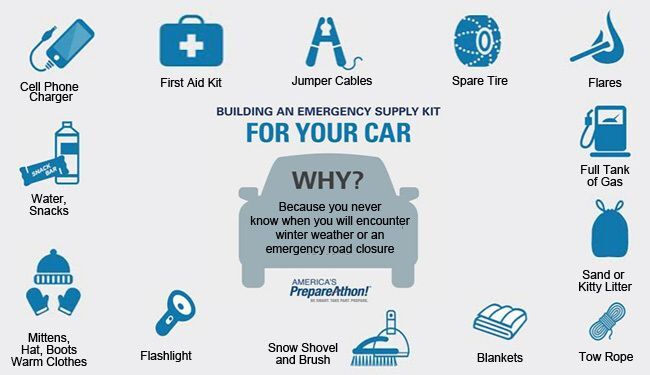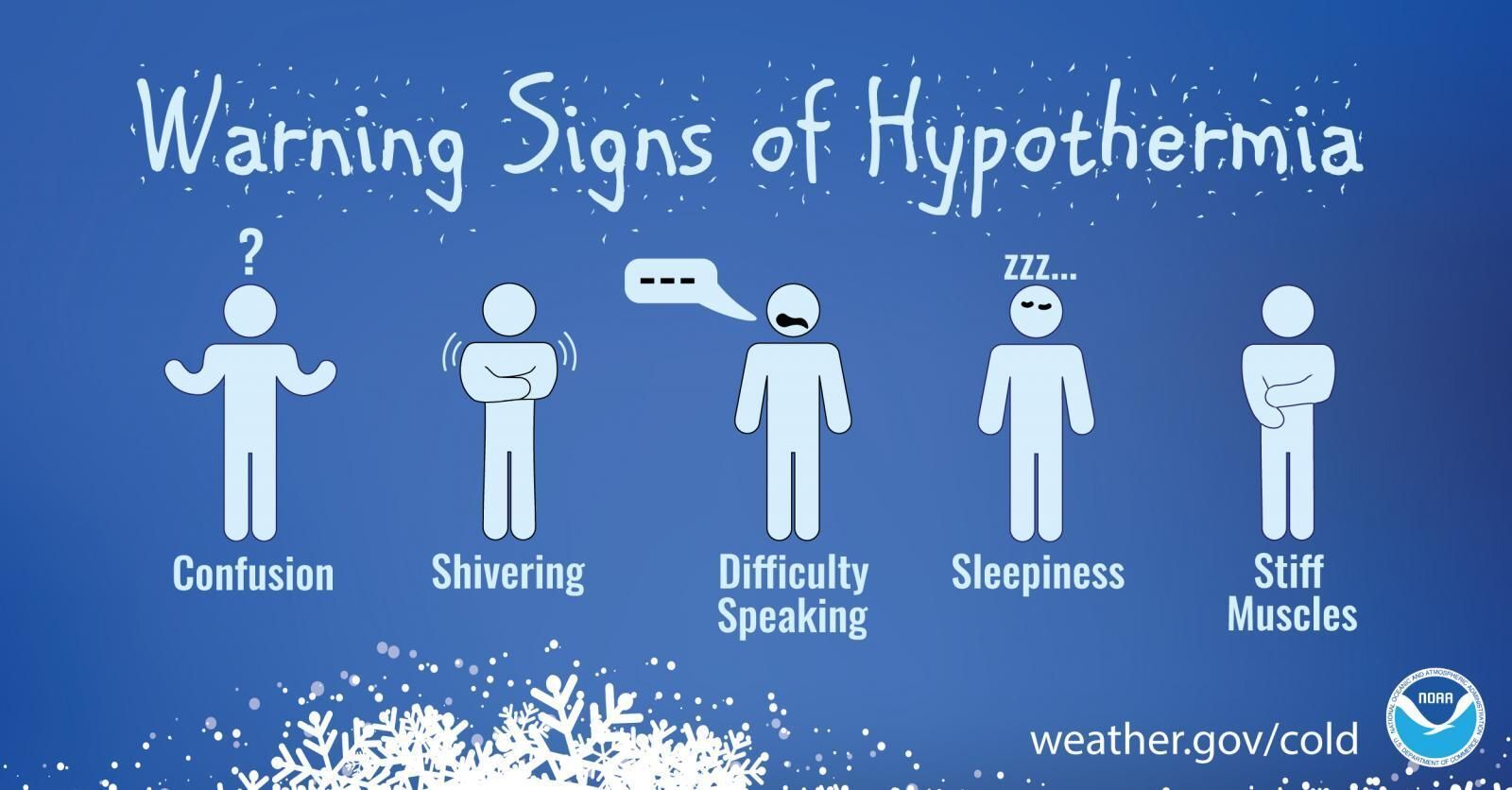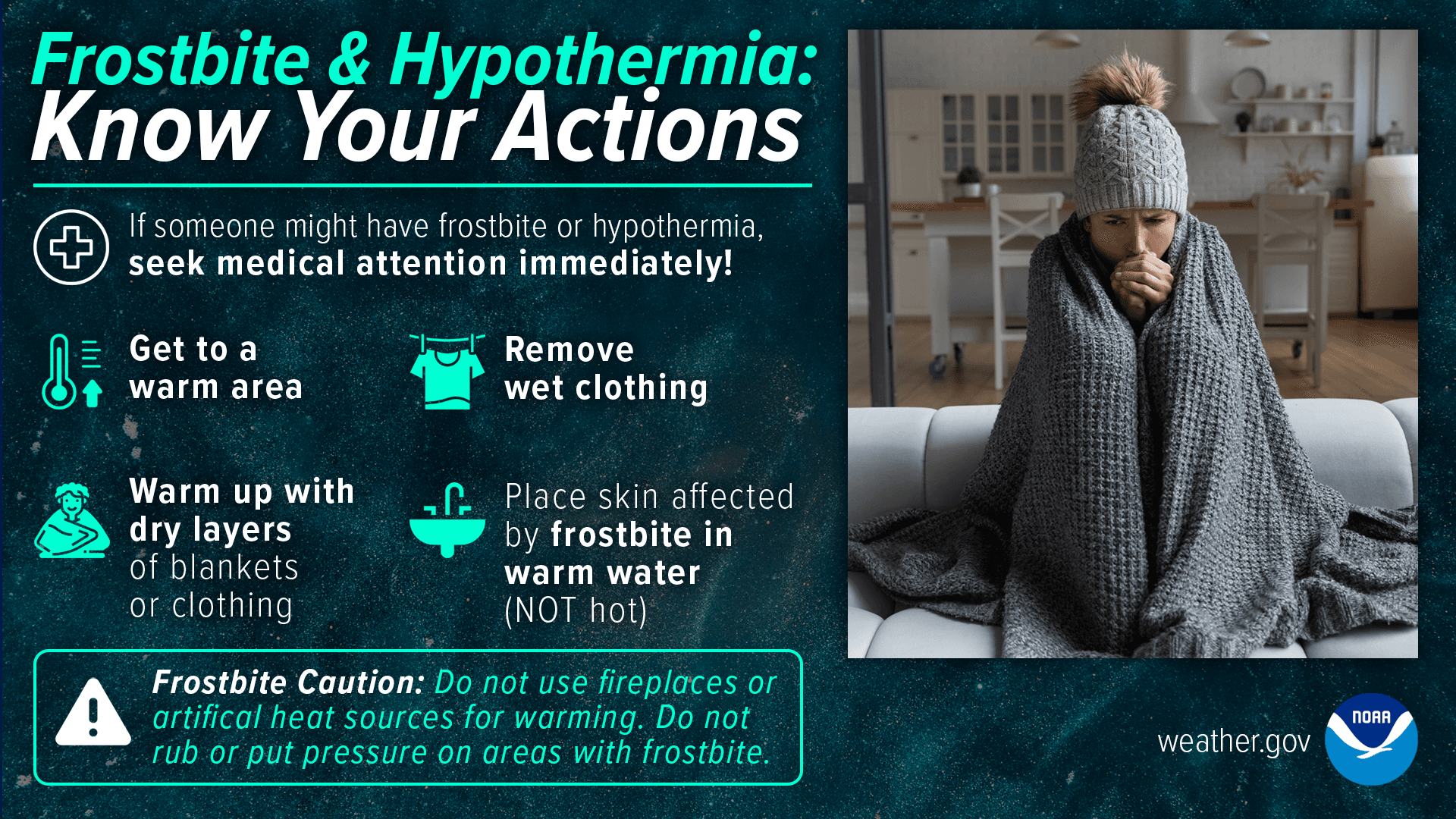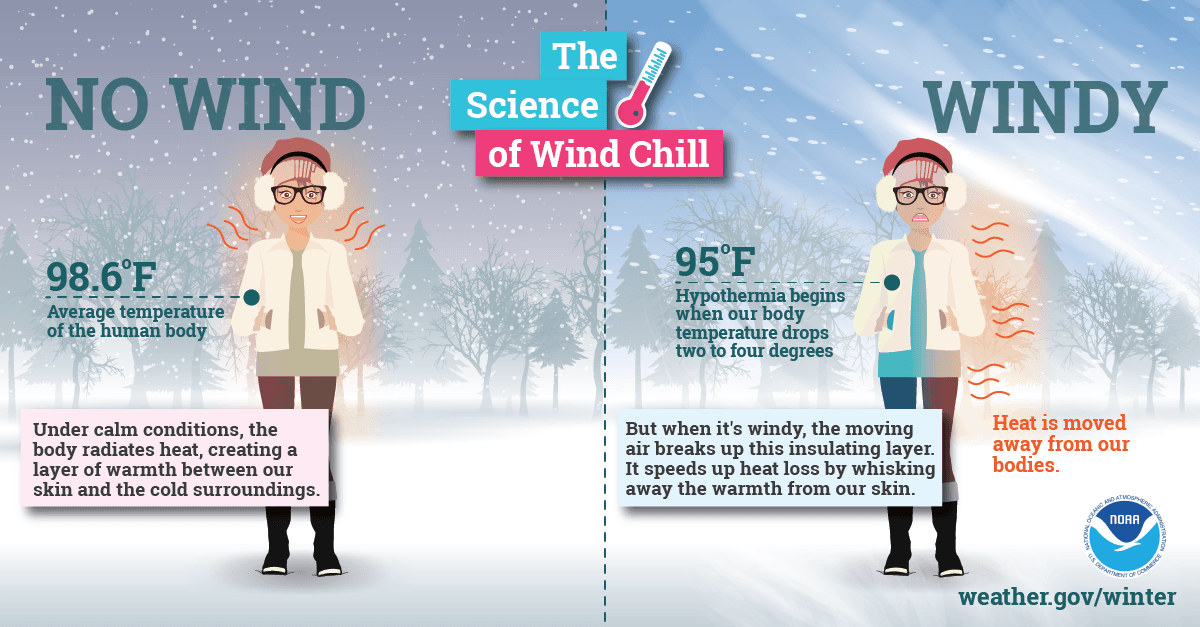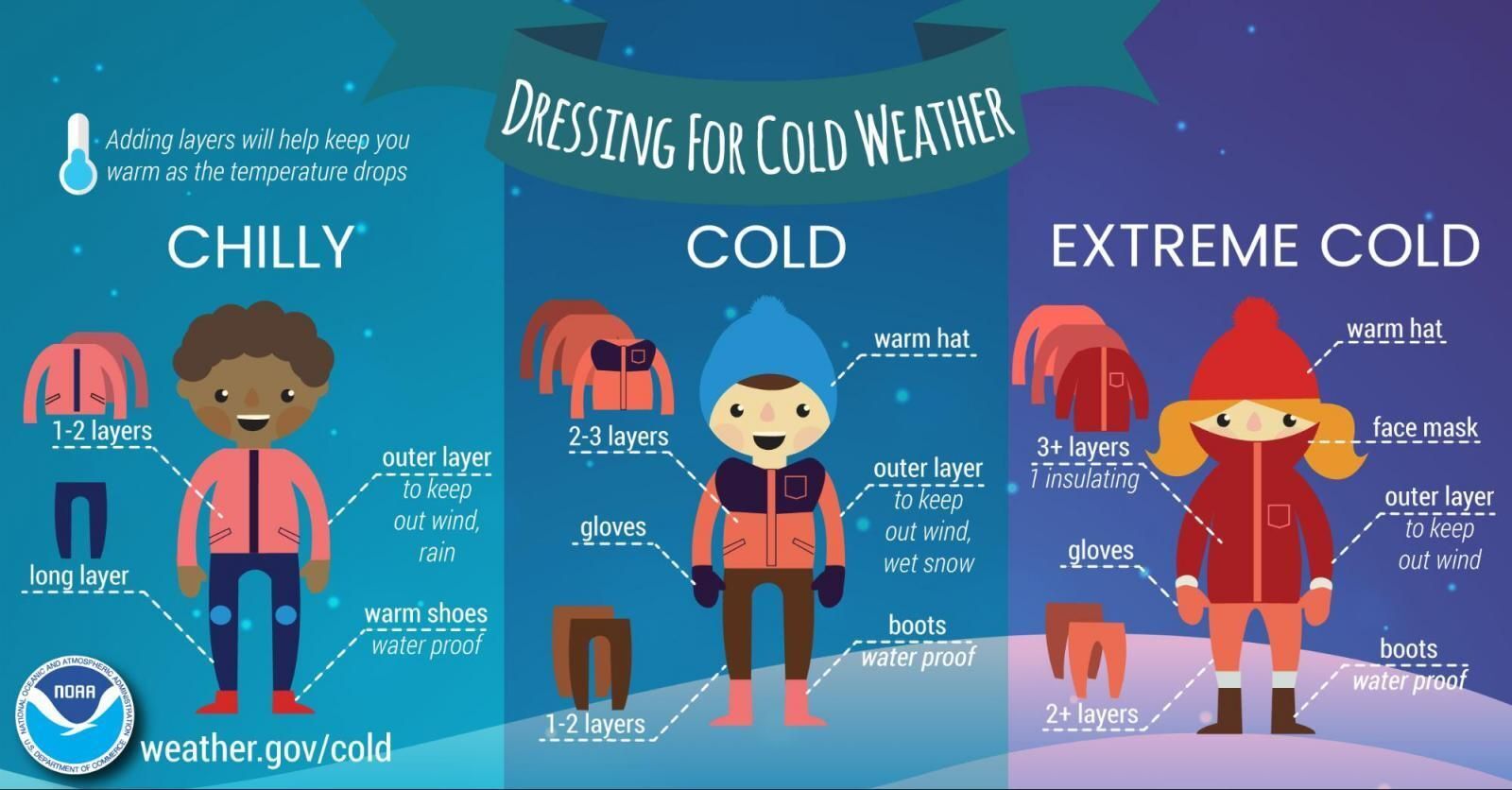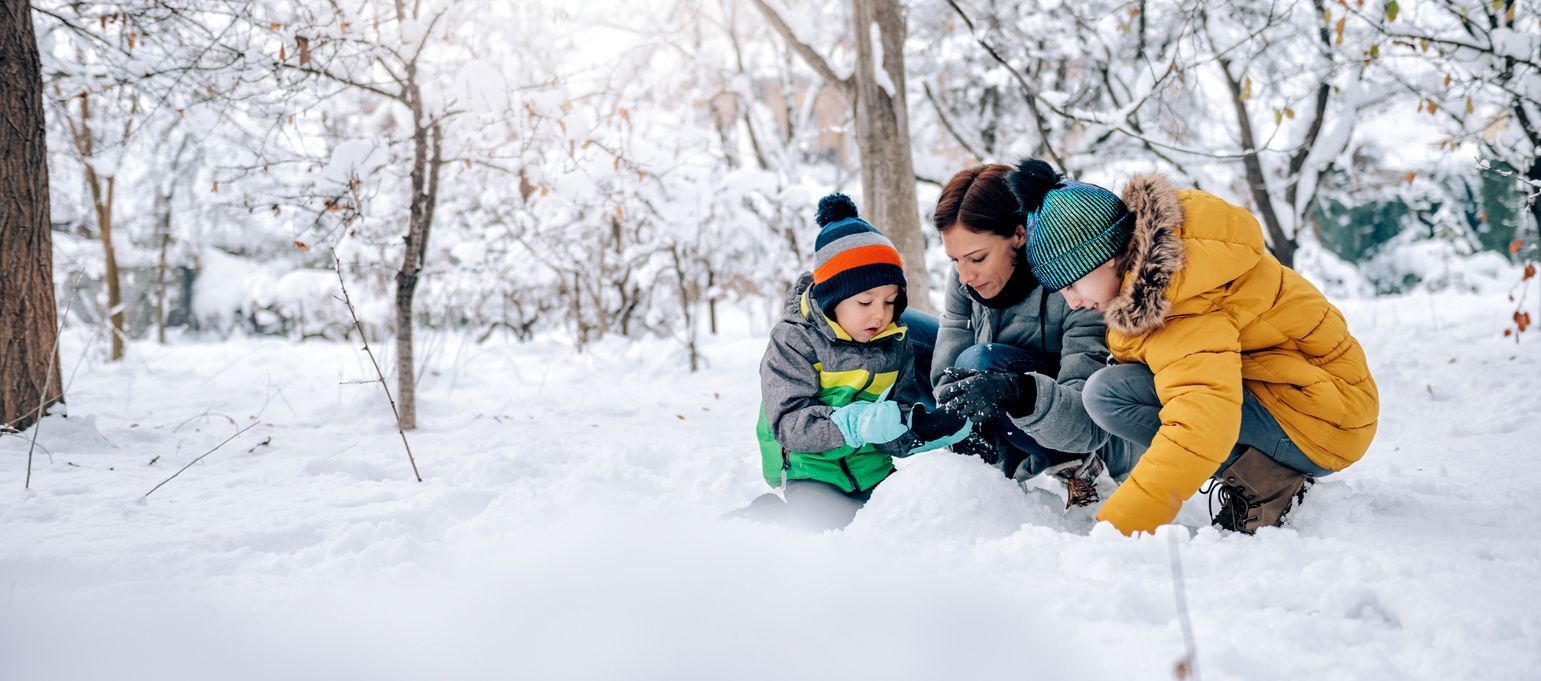Winter weather can be beautiful, but it can also be hazardous, especially if you are caught unprepared during a winter storm or blizzard.
Winter storms create a higher risk of car accidents, hypothermia, frostbite, carbon monoxide poisoning, and heart attacks from overexertion. Winter storms including blizzards can bring extreme cold, freezing rain, snow, ice and high winds.
A winter storm can:
- Last a few hours or several days.
- Cut off heat, power and communication services.
- Put older adults, children, sick individuals and pets at greater risk.
Avoid carbon monoxide poisoning. Only use generators and gas grills outdoors and away from windows. Never heat your home with a gas stovetop or oven.

Staying Warm When the Power is Out
- Close blinds or curtains to keep in some heat.
- Close off rooms to avoid wasting heat.
- Wear layers of loose-fitting, lightweight, warm clothing.
- Eat and drink. Food provides energy to warm the body. Avoid caffeine and alcohol.
- Stuff towels or rags in cracks under doors.
Be Prepared for Winter Weather
Taking steps now to prepare for winter weather may save you time and money later if a winter storm impacts your community.
- Prepare your home to keep out the cold with insulation, caulking and weather stripping. Learn how to keep pipes from freezing. Install and test smoke alarms and carbon monoxide detectors with battery backups.
- Gather supplies in case you need to stay home for several days without power. Keep in mind each person’s specific needs, including medication. Remember the needs of your pets. Have extra batteries for radios and flashlights. Learn more at Ready.gov
- If you are unable to afford your heating costs, weatherization or energy-related home repairs, contact the Low Income Home Energy Assistance Program (LIHEAP) for help.
- Put together an emergency supply kit for your car in case you are stranded when away from home.
